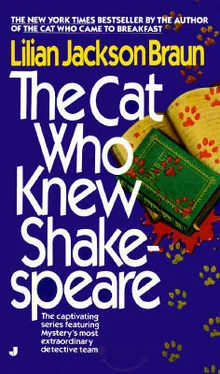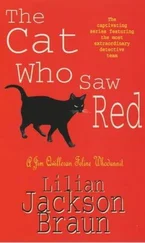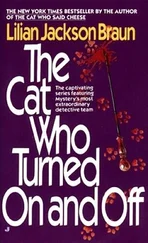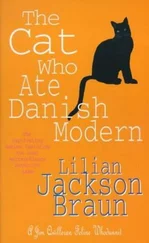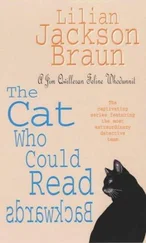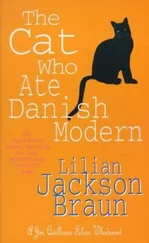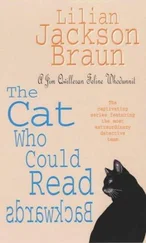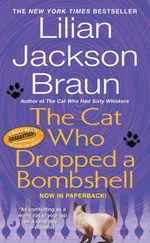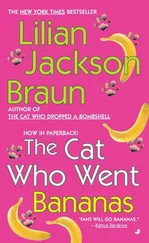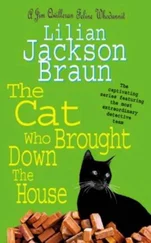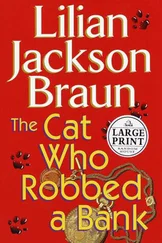Lilian Braun - The Cat Who Knew Shakespeare
Здесь есть возможность читать онлайн «Lilian Braun - The Cat Who Knew Shakespeare» весь текст электронной книги совершенно бесплатно (целиком полную версию без сокращений). В некоторых случаях можно слушать аудио, скачать через торрент в формате fb2 и присутствует краткое содержание. Жанр: Классический детектив, на английском языке. Описание произведения, (предисловие) а так же отзывы посетителей доступны на портале библиотеки ЛибКат.
- Название:The Cat Who Knew Shakespeare
- Автор:
- Жанр:
- Год:неизвестен
- ISBN:нет данных
- Рейтинг книги:4 / 5. Голосов: 1
-
Избранное:Добавить в избранное
- Отзывы:
-
Ваша оценка:
- 80
- 1
- 2
- 3
- 4
- 5
The Cat Who Knew Shakespeare: краткое содержание, описание и аннотация
Предлагаем к чтению аннотацию, описание, краткое содержание или предисловие (зависит от того, что написал сам автор книги «The Cat Who Knew Shakespeare»). Если вы не нашли необходимую информацию о книге — напишите в комментариях, мы постараемся отыскать её.
The Cat Who Knew Shakespeare — читать онлайн бесплатно полную книгу (весь текст) целиком
Ниже представлен текст книги, разбитый по страницам. Система сохранения места последней прочитанной страницы, позволяет с удобством читать онлайн бесплатно книгу «The Cat Who Knew Shakespeare», без необходимости каждый раз заново искать на чём Вы остановились. Поставьте закладку, и сможете в любой момент перейти на страницу, на которой закончили чтение.
Интервал:
Закладка:
"What about Herb?"
"He won't mind. There's something on TV that he likes to watch every Sunday night."
Qwilleran had qualms about this marriage, and they were growing stronger. He would feel like a hypocrite, standing up for a man he heartily disliked, but he was doing it for Mrs. Cobb. She was always so generous with her time and effort and good cheer... so eager for approval and so embarrassed when praised... so knowledgeable in her field and yet so gullible in her emotions... so ready to please and adjust to the whims of others — especially a man with muscles and tattoos.
"You're still shaking, Mrs. Cobb," he said. "It's excitement and lack of sleep. Go upstairs and take it easy. I'll feed the cats and go out to dinner. And don't prepare any meals tomorrow; it's your wedding day."
She thanked him profusely and retired to her suite.
Qwilleran went into the library to select wedding music: Bach for the ceremony and Schubert with the champagne and caviar. Koko followed him and scrutinized each cassette, sniffing some and reaching for others with an uncertain paw.
"A feline librarian is bad enough," Qwilleran said. "Please! We don't want a feline disc jockey."
"Nyik nyik nyik," Koko retorted irritably, swiveling one ear forward and the other back.
The telephone rang, and the caller said, "The friendly telephone company has resumed service to the peasants on MacGregor Road."
The melodic voice made the back of Qwilleran's neck tingle. "I've been thinking about you, Polly. I've been thinking about everything."
"It turned out beautifully, Qwill, but I shudder to think I of you in that whiteout."
"I've done a little shuddering myself. When can I see you again?"
"I'd like to drive in for the concert Sunday night."
"Why not pack an overnight bag? If you drive home after the concert, you'll only have to turn around and come back Monday morning. You can have your choice of suites upstairs: English, Empire, or Biedermeier."
"I think I'd like an English suite," Polly said. "I've always wanted to sleep in a four-poster bed with side curtains."
"YOW!" Koko said.
Replacing the receiver gently, Qwilleran said, "And you mind your own business, young man!"
14
Saturday, November twenty-third. "Cloudy skies and another three inches of snow," the weatherman was predicting. Nevertheless, the sun was shining, and Pickax was shimmering under the blanket of white that had descended on Thursday. Snow stayed white in Pickax.
When Qwilleran went to the main house to prepare the cats' breakfast, Mrs. Fulgrove and Mr. O'Dell were on the job. "Nice day for a wedding," he remarked.
"Sure, now, when it comes to marryin', the divil take the weather," said the houseman. "When I wedded herself, the heavens thundered an' the dogs howled an' the birds fell dead in the road, but for forty-five year we lived together with nary an angry word between us. An' when she went, God rest her soul, she went sudden with nary a pain or tear."
Mrs. Cobb was nervous. With no meals to prepare and no rum-raisin squares to bake, she puttered aimlessly about the house, waiting for her hair appointment. The cats were restless, too, sensing an upheaval of some kind. They prowled ceaselessly, and Koko talked to himself with private yows and iks and occasionally shoved a book off the shelf. Qwilleran was glad to escape. At two o'clock he was scheduled to interview Sarah Woolsmith.
The ninety-five-year-old farm woman was a long-term resident at the senior care facility adjoining the Pickax Hospital, two modem buildings that seemed out of place in a city of imitation castles and fortresses.
The matron at the reception desk was expecting Qwilleran. "Mrs. Woolsmith is waiting for you in the reading room," she said. "You'll have the place all to yourselves, but please limit your visit to fifteen minutes; she tires easily. She's looking forward to the interview. Not many people want to listen to elderly folks talk about the old days."
In the reading room he found a frail little woman with nervous hands, sitting in a wheelchair and clutching her shawl. She was accompanied by the volunteer who had wheeled her down from her bedroom.
"Sarah, dear, this is Mr. Qwilleran," the volunteer said slowly and clearly. "He's going to have a nice visit with you." In an aside she whispered, "She's ninety-five and has almost all her own teeth, but her eyesight is not good. She's a dear soul, and we all love her. I'll sit near the door and tell you when the time is up."
"Where are my teeth?" Mrs. Woolsmith demanded in shrill alarm.
"Your partial is in your mouth, dear, and you look lovely in your new shawl." She squeezed the old lady's arm affectionately.
Wasting no time on preliminaries, Qwilleran said, "Would you tell me what it was like to live on a farm when you were young, Mrs. Woolsmith? I'm going to turn on this tape recorder." He held up the machine for her to see, but she looked blankly in several directions.
The following interview was later transcribed:
Question: Were you born in Moose County?
I don't know why you want to talk to me. I never did anything but live on a farm and raise a family. I had my name in the paper once when I had a burglar.
What kind of farming did you do?
It was in the paper — about the burglar — and I tore it out. It's in my purse. Where's my purse? Take it out and read it. You can read it to me. I like to hear it.
Sarah Woolsmith, 65, of Squunk Corners was sitting alone and knitting a sweater in her living room last Thursday at 11:00 p.m., when a man with a handkerchief over his face burst in and said, "Give me all your money. I need it bad." She gave him $18.73 from her purse, and he fled on foot, leaving her unharmed but surprised.
I used to knit in them days. We had seven children, John and me, five of them boys. Two killed in the war. John died in the big storm of '37. Went to bring in the cows and froze to death. Fifteen cows froze and all the chickens. Winters was bad in them days. I have a 'lectric blanket. Do you have a 'lectric blanket? When I was a young girl we slep' under a pile of quilts, my sisters and me. Mornings we looked up to see the frost on the ceiling. It was pretty, all sparkly. There was ice in the pitcher when we washed our face. Sometimes we caught cold. Ma rubbed skunk oil and goose grease on our chests. We didn't like it. (Laughs.) My brother shot wild rabbits, but I could chase 'em and catch 'em. Pa was proud of me. Pa didn't have a horse. He hitched Ma to the plow, and they tilled the land. I didn't go to school. I helped Ma in the kitchen. Once she was sick and I had to feed sixteen men. I was only this big. Harvesttime, it was. They was all neighbors. Neighbors helped neighbors in them days.
Did you ever have time for...
Us womenfolks, we scrubbed clothes in a washtub and made our own soap. I made vinegar and butter. We stuffed pillows with chicken feathers. We had lots of those! (Laughs.) Once a week we took the wagon to town and got the mail and bought a penny stick of horehound candy. I married John and we had a big farm. Cows, horses, pigs, chickens. We hired neighbor boys for huskin' and shellin'. Nickel an hour. The whitetails came and ate our com. Once the grasshoppers came and ate everything. They ate the wash on the line. (Laughs.) The neighbor boys worked twelve hours a day, huskin' and shellin'.
What do you remember about...
Never locked our doors. Neighbor could walk in and borrow a cup of sugar. It was a neighbor boy took my money. I knowed who he was, but I didn't tell the constable. I knowed his voice. Worked on our farm sometimes.
Why didn't you tell the constable?
His name was Basil. I felt sorry for him. His father was in prison. Killed a man.
Was that the Whittlestaff family?
Читать дальшеИнтервал:
Закладка:
Похожие книги на «The Cat Who Knew Shakespeare»
Представляем Вашему вниманию похожие книги на «The Cat Who Knew Shakespeare» списком для выбора. Мы отобрали схожую по названию и смыслу литературу в надежде предоставить читателям больше вариантов отыскать новые, интересные, ещё непрочитанные произведения.
Обсуждение, отзывы о книге «The Cat Who Knew Shakespeare» и просто собственные мнения читателей. Оставьте ваши комментарии, напишите, что Вы думаете о произведении, его смысле или главных героях. Укажите что конкретно понравилось, а что нет, и почему Вы так считаете.
